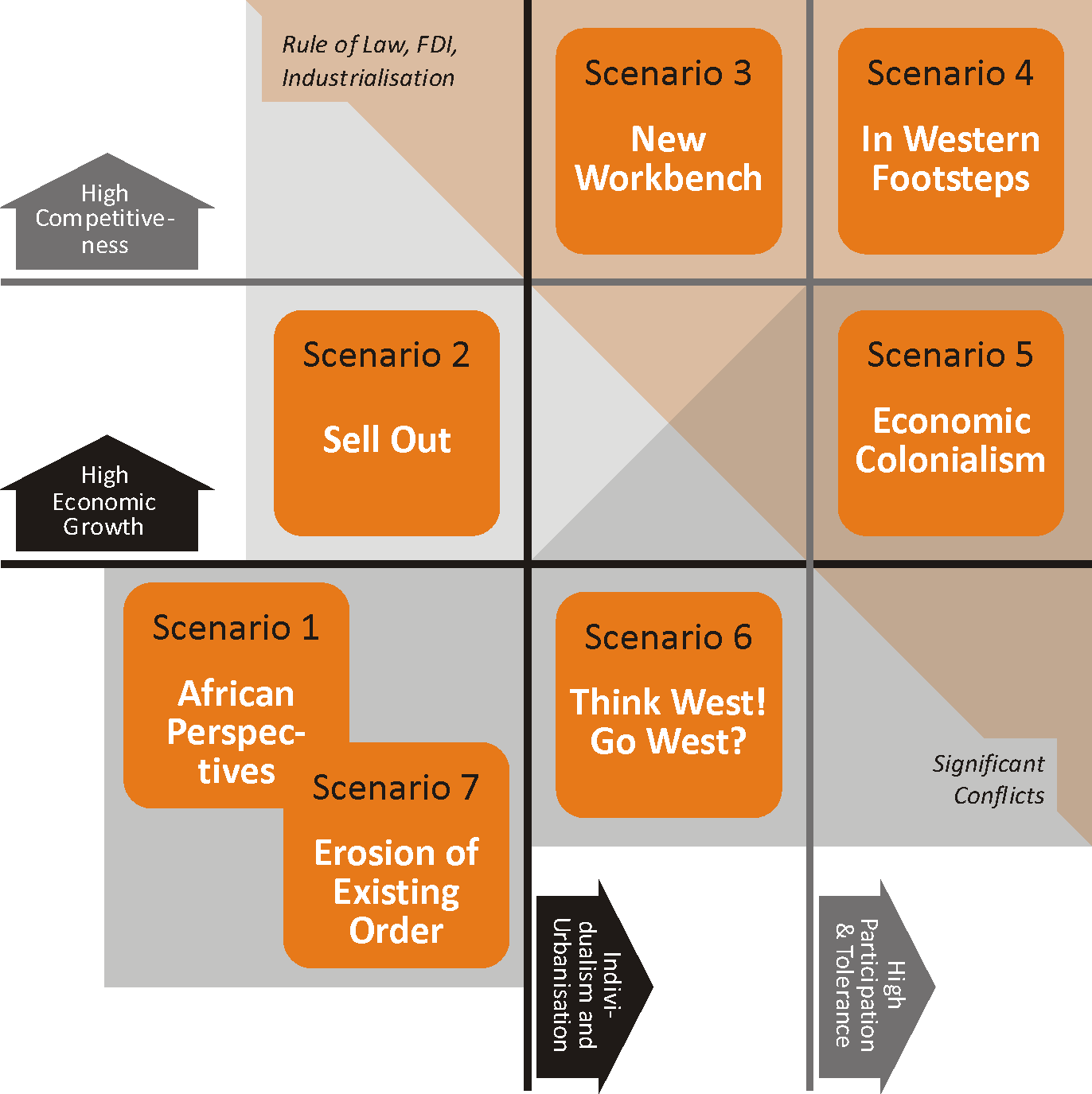Seven Scenarios for the Future of Africa 2030
But does this »Black-and-White-Thinking« (apart from the inappropriate wording) really help? In our view, substantiated by our analysis, there are too many different drivers for just two Best- and Worst-case-pictures. Within our Scenario-Management-process, we worked with 24 key factors for which at least four alternative developments have been taken into account. This led to a very diverse view on the future of the continent – and it made it hard for us to reduce this complex system to seven consistent and different future scenarios.
The seven scenarios cover many different aspects of the discussion about Africas future: Will the economic boom continue and consolidate, or will the negative indicators prevail? And will the African economies migrate from grey to global ones? Will the level of social, ethnical, religious or military conflicts grow or decline? And will Africa search for and find its own way, or will it primarily follow Western or Eastern models? These and many more questions are covered in our "map of the future".

This "map of the future" is created by an economic and a socio-political axis. Economically the scenarios differ by the growth rates and the global competitiveness of Africa. From the societal point of view, urbanisation and individualisation are an important difference - as well as participation and openness of societies. In the orange area of the map, the scenarios are characterized by a higher rule of law, significant foreign direct investments and a strong industrialization. The seven scenarios could be described in the following ways:
Even these scenarios are not universal. Different perspectives are possible: The scenarios could be seen as general development tendencies for the whole continent. This view stimulates a geopolitical discussion and allows us a detachment from current, specific and personal experiences. But in reality the whole continent will not move simultaneously into one or another direction. Countries will follow different development paths. To add this second perspective, we used a regional specific scenario-assessment. Based on indicators for all 24 key factors, we identified the nearness of each scenario to the current situation of the single nation states. This is a new kind of scenario-analysis, so that we are looking forward to your feedback – content- as well as methodology-wise.



